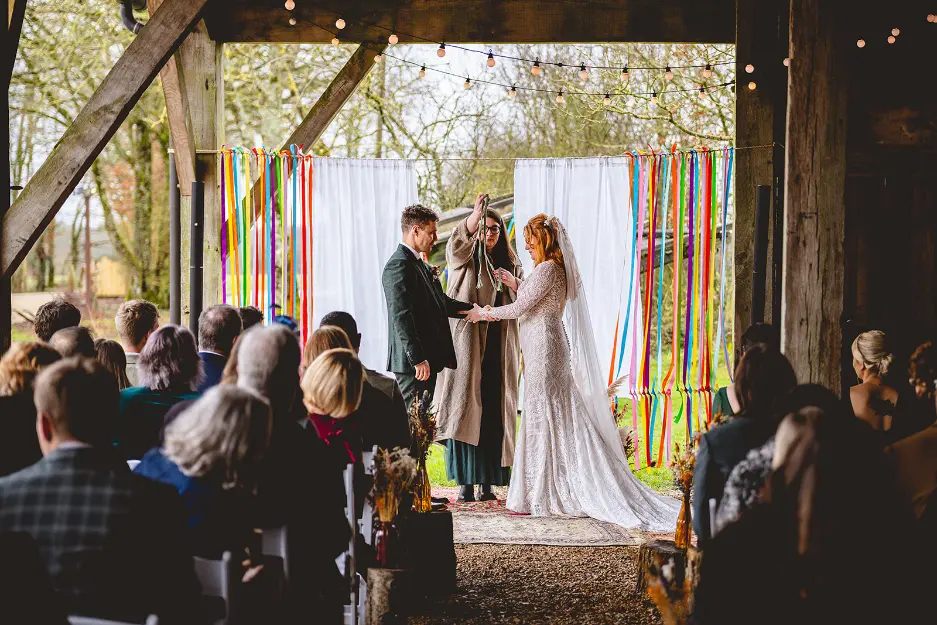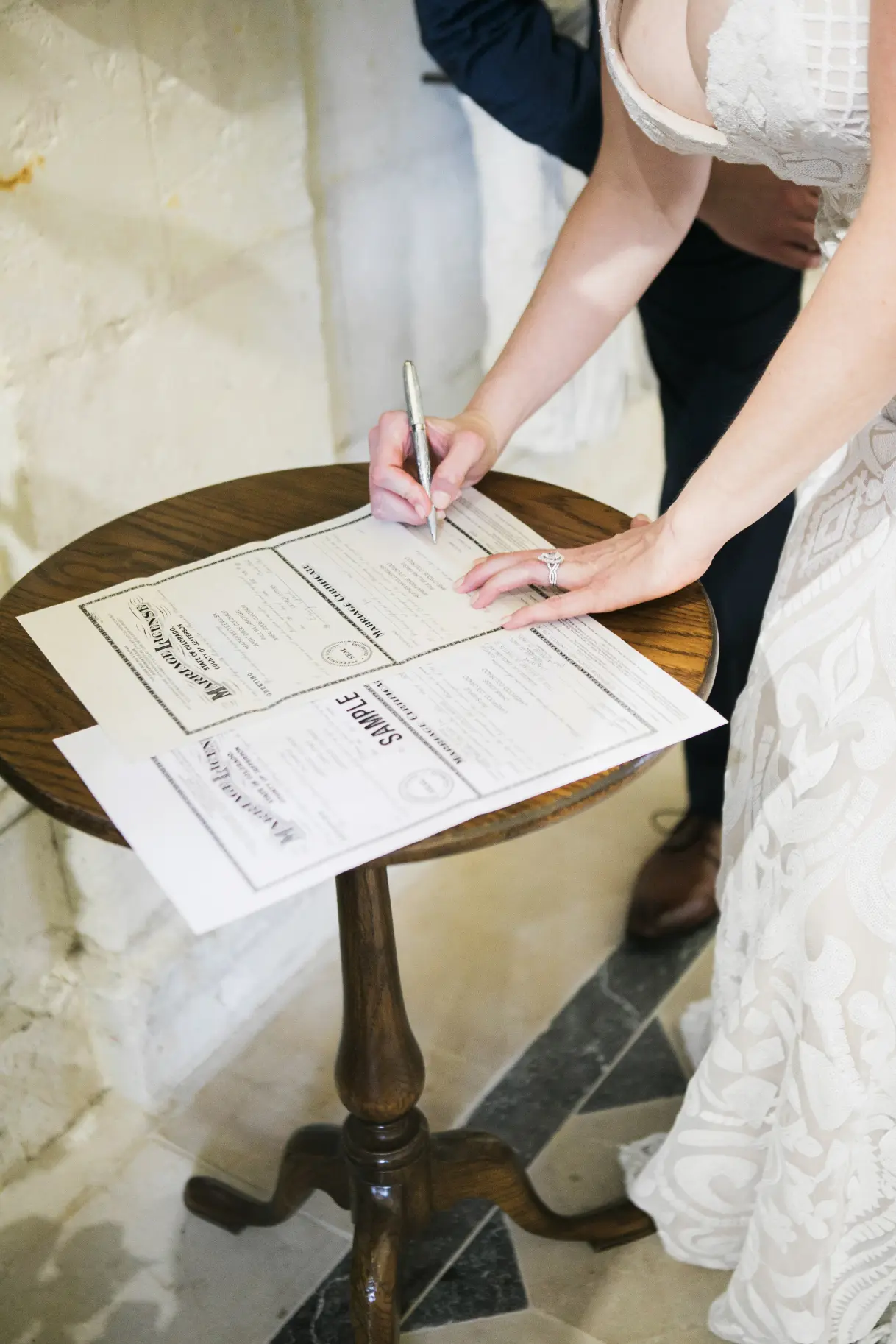Do you dream of celebrating your International Wedding in France in a romantic setting, surrounded by vineyards, châteaux or Atlantic beaches? An excellent idea! But before you can say “I do” in the land of love, you need to master a whole raft of administrative rules and practical challenges. This step-by-step guide reveals everything that a foreign - or mixed - couple and a Wedding Planner need to anticipate to ensure a perfect, stress-free day.

Context and challenges of an international Wedding Celebration in France
According to INSEE, 16% of unions celebrated in 2022 were mixed marriages. This stable proportion illustrates the continuing appeal of France as a destination for international weddings. With its culinary prestige, historical heritage and accessibility from Europe's major capitals, France has a lot to offer. However, every international wedding in France involves :
- A sometimes unfamiliar French legal framework.
- Documents to be collected and translated.
- Coordinating several time zones and cultures.
- The orchestration of guests from the four corners of the world.
Ignoring these issues can lead to delays or even cancellation of the civil ceremony. Hence the importance of professional guidance from your Wedding Planner.
Legal framework: here are the essential administrative formalities
Prerequisites to be met beforehand
- Residence: one of the future spouses - or one of their parents - must have been resident in the chosen commune for at least one month.
- Age: you must have reached the age of majority (18).
- No prohibited ties: no close relationship or alliance.
"An international wedding in France is valid only after a civil ceremony, followed by a religious wedding. "

Putting together your wedding file
Submit your complete file to the Mairie several months before the desired date; some municipalities allow eight to twelve weeks for processing.
- Identity document : valid passport or identity card.
- Proof of address : bill, receipt, tax assessment.
- Birth certificate : less than three months old (France) or six months old (abroad), translated by a sworn expert and apostilled if necessary.
- Certificate of custom : certifies that the marriage will be recognised by the country of origin.
- Certificate of celibacy or non-remarriage.
Depending on the notary, collection and legalisation can take up to six months in some countries.
The key stages in Planning your Wedding
- Submitting the application : this triggers any preliminary hearings.
- Hearing : the civil registrar verifies the couple's intention to marry.
- Publication of banns : posted for 10 days, then marriage to be celebrated within the year.
- Civil ceremony : the only legally recognised union. A sworn interpreter is required if one of the spouses does not speak French.
Here are some of the logistical challenges and tried and tested solutions that we have been able to overcome and that you may encounter when planning your Wedding in France
Document management
The first headache of an international wedding in France is the collection - translation - apostille chain. Tip: draw up a precise timetable, indicating for each document :
- Issuing country and competent authorities.
- Average time taken to obtain the document.
- Translation required? Yes/No.
- Apostille or legalisation? Yes/No.
The language barrier
It's best to contract with bilingual service providers (venues, caterers, photographers), or use an international wedding planner with experience of multilingual weddings.
Travel and accommodation
For an event in Loire Valley, South of France or the Paris region, make sure you have :
- A clear transport plan (stations, airports, private shuttles)
- A number of rooms on your premises for you and your guests, at your Reception Venue, in Chamrbes d'Hôtes, in nice hotels...
- A list of tourist activities to extend your guests' stay
Incorporate cultural specificities into your wedding ceremony
Each culture has its own rituals: the Chinese tea ceremony, Brazilian quebra-nozes, Hawaiian leis... An international wedding in France can incorporate these while respecting the sobriety of French ceremonies. The secret? Explain the meaning of each rite to the civil or secular master of ceremonies to avoid any misunderstandings.
The key role of your Destination Wedding Planner
As a study by Aletheia Communication points out, 78% of foreign couples consider long-distance planning to be their main stress factor. Here's why a specialist wedding planner is invaluable:
- Administrative facilitator : he or she ensures that the file is impeccable.
- Cultural interpreter : translates expectations and sensitivities to service providers.
- Logistical orchestra conductor : coordinates transport, accommodation and granular timing on D-Day.
- Guaranteed peace of mind : he manages the unexpected, so you can live in the moment.
Frequently asked questions
Can two people from a country other than France get married in France?
Yes, if one of the couple - or a relative - has been resident in the wedding town for one month.
When should I start organising my wedding ceremony?
Ideally, between six months and a year before the desired date, to take account of the time needed to obtain the apostille.
Is a religious marriage performed in France recognised in my country of origin?
No. Only civil marriages are legal. Any religious ceremony takes place after your marriage at the Mairie.
What is an apostille?
A simplified certification, resulting from the Hague Convention, which authenticates a public document for international use.
Express ‘6 months before’ checklist
- Set the town and date of the civil ceremony.
- Start collecting birth certificates.
- Book your bilingual Wedding Planner or english speaking Vendors
- Negotiate accommodation and transport.
- Draw up a detailed schedule with your wedding planner.
Conclusion: turn your French Dream Wedding into reality
An an international wedding in France requires method and expertise. By understanding the legislation, securing the logistics and relying on a seasoned wedding planner, you can offer yourself the luxury of a harmonious celebration, punctuated by your traditions and French know-how.
Ready to get started ? Contact us today to start writing your made in France love story !

